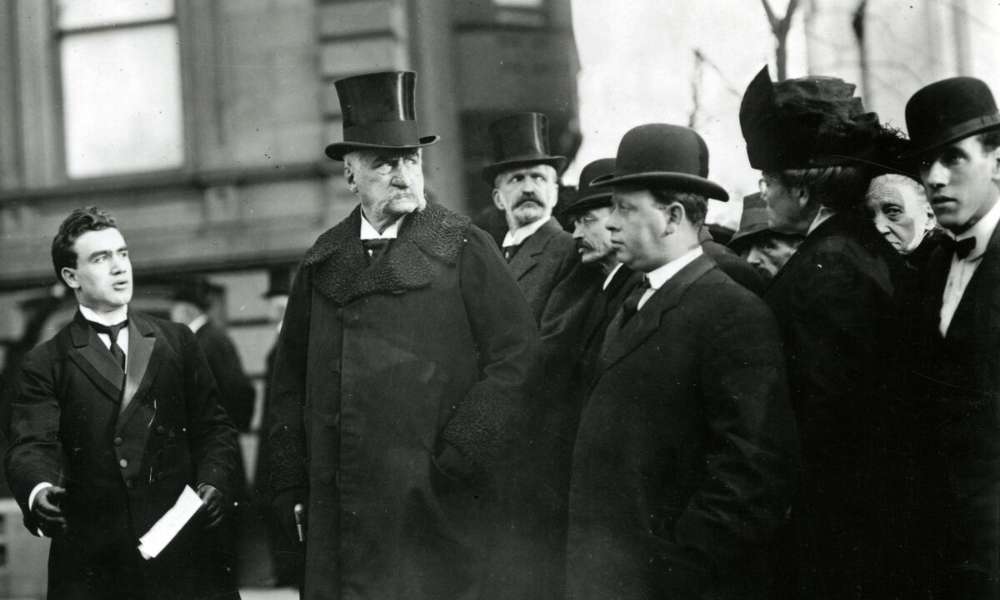
J.P. Morgan, a towering figure in the world of finance, left an indelible mark not only on the financial landscape but also on U.S. policies and the economy. His influence was far-reaching, and his financial acumen played a pivotal role in shaping the nation's economic trajectory.
| Are you a Tax Lawyer in USA? 👉Transform Your Brand: Click for Metamorphosis👈 |
Banker to the Government: One of the most notable ways in which J.P. Morgan influenced U.S. policies and the economy was through his role as a banker to the government. During times of financial crisis, such as the Panic of 1907, Morgan stepped in to provide much-needed stability.
At the behest of President Theodore Roosevelt, he convened a group of financiers to pool their resources and prevent a catastrophic collapse of the banking system. This action showcased his immense financial power and highlighted the need for financial regulation.
Supporting Industrial Expansion: J.P. Morgan was a key figure in financing industrial expansion in the United States during the late 19th and early 20th centuries.
His firm, J.P. Morgan & Co., played a central role in underwriting and financing major corporations, including railroads, steel manufacturers, and utilities. This support for industrial growth had a profound impact on the nation's economy, facilitating the development of crucial industries and infrastructure.
Mergers and Consolidation: Morgan's influence extended to the world of corporate mergers and consolidation. His firm was instrumental in facilitating some of the largest mergers of the time, including the formation of General Electric and U.S. Steel. These mergers not only reshaped industries but also contributed to the emergence of large, diversified corporations that played a significant role in the U.S. economy.
Influence on Monetary Policy: J.P. Morgan's opinions on monetary policy and the gold standard held weight with policymakers. His advocacy for a strong gold-backed currency influenced the direction of U.S. monetary policy.
While not a government official, his opinions carried substantial influence in shaping the nation's economic policies.
Philanthropic Efforts: Beyond his financial dealings, J.P. Morgan was a philanthropist who supported various charitable causes and cultural institutions.
His contributions helped establish institutions such as the Metropolitan Museum of Art, which had a positive impact on the arts and culture sectors of the U.S. economy.
Legacy and Regulation: J.P. Morgan's immense influence also led to a growing awareness of the need for financial regulation. His actions, while often seen as necessary during crises, raised concerns about the concentration of financial power.
In the aftermath of the Panic of 1907, there was a push for increased government oversight of the financial industry, leading to the eventual creation of the Federal Reserve System in 1913.
In conclusion, J.P. Morgan's influence on U.S. policies and the economy was multifaceted and far-reaching. His role as a banker to the government, support for industrial expansion, involvement in mergers, impact on monetary policy, and philanthropic efforts all left an enduring legacy.
While his actions stabilized the financial system during times of crisis, they also underscored the need for regulatory measures to ensure the stability and integrity of the U.S. economy.